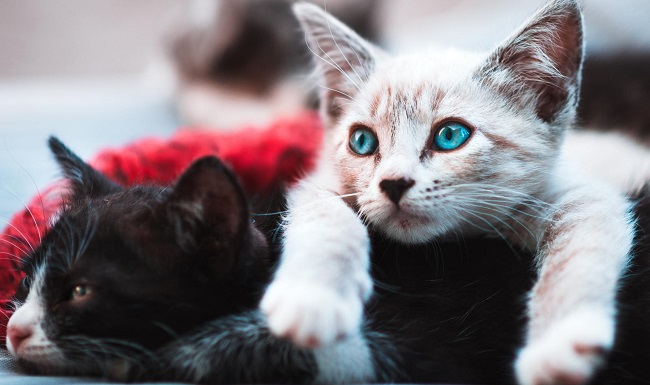Feline Inflammatory Bowel Disease
Feline inflammatory bowel disease develops when the intestinal tract is home to too many inflammatory cells. They’re sent there by the immune system to fight off an invader, although one doesn’t really exist. Although the condition makes life very uncomfortable for your cat, it can cause even more serious problems. The intestine will eventually start to lose its ability to absorb nutrients thanks to prolonged inflammation.
It is quite common for this disease to be mistaken with irritable bowel syndrome. The nerves are responsible for causing problems with irritable bowel syndrome, while inflammatory cells are responsible for the signs caused by inflammatory bowel disease in cats.
Cause
Unfortunately, no one understands the reason why this disease occurs. However, there are various factors that are suspected to increase the risk of its development. Two of the main factors include nutrition and genetics. Also, immune system issues have also been suspected to play a role.
Signs
The signs caused by cat inflammatory bowel disease start out slowly and get progressively worse. Vomiting and diarrhea occur initially. However, they don’t appear frequently, so owners don’t usually suspect that something else may be wrong.
As mentioned, inflammation will reduce the intestines ability to absorb nutrients from food. This will result in your cat slowly losing weight. He will also lose his appetite. Stools will be much looser than normal. Also, instead of being solid, they’ll typically be full of mucous.
There are many other conditions that cause signs similar to those caused by feline inflammatory bowel disease. One of the most common is hyperthyroidism. Pancreatitis, leukemia virus, and kidney failure are two other diseases that may be to blame for symptoms. Two other problems that will have to be ruled out include infections by parasite or bacteria.
Diagnosis
A stool sample will be helpful in determining problem. The presence of parasites may be detected. If not, mucousy or bloody stool may point to inflammatory bowel disease in cats.
It’s important that owners give the vet a rough timeframe of when the symptoms started. The vet will need to do a complete review of the medical history as well as a physical examination of your cat. If this disease is to blame, palpation of the intestines may help determine that they’re too firm and thick.
If cat inflammatory bowel disease is suspected, then the vet will likely perform a biopsy. If there are too many inflammatory cells in the intestines, then the biopsy will show their presence. If the cells are detected, then the vet will need to know what type they are which the biopsy will also show.
Treatment
It’s important to understand that there is no cure for this disease. The symptoms it causes can only be managed. To ensure that a bacterial infection isn’t responsible, antibiotics may be given. Loose stool and diarrhea can be limited with specific medications also.
Vets often recommend a change in diet in order to help with inflammatory bowel disease in cats. One or more of the ingredients in your cat’s food may be the underlying cause of the disease. Therefore, vets may start treatment by trying a diet that’s highly-digestible or hypoallergenic.
It is vital that you not feed your cat anything that’s not on the approved food list by your veterinarian. It can a few weeks to a few months for the symptoms to go away based on a food trial. Steroids and medications to suppress the immune system from sending the inflammatory cells can also be helpful in dealing with feline inflammatory bowel disease.

